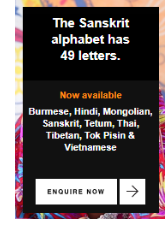Commotion has erupted in Maldives over growing Indian influence on the country’s domestic affairs, creating space for other Indo-Pacific partners to step in, Athaulla Rasheed writes.
A recent ‘India out’ campaign in Maldives has been raising concern over India’s growing involvement in the internal affairs of the country.
Maldives has maintained India as its most important strategic and development partner since they established diplomatic ties in 1965, though India’s engagements with South Asian neighbours including Maldives have not gone unchallenged.
Recent decades have seen the growth of Chinese development projects and investments in Maldives, especially during the 2013 to 2018 period, when then-President Abdulla Yameen Abdul Gayoom brought major development and investment projects from China to Maldives.
The expansion of Maldives-China development cooperation has been a cause of serious strategic concern for India, as it has a vested interest in Maldives both on security and political grounds. Keeping the Maldives’ political interests aligned with India’s has been a fundamental aspect of India-Maldives strategic relations.
The Yameen government’s legacy is key to the current commotion. As president, Yameen took a more independent approach to foreign partnerships and investments than Maldives had in the past. He was a power-oriented leader, firm on ideas of political stability, self-determination, political independence, and development cooperation being only for the security of Maldives.
In his inauguration speech in 2013 he said that “Maldives is in a deep economic pit” and that the country would decide its own affairs. His government even exited the Commonwealth in 2016 as a means to oppose Western pressures, though the country re-joined in 2020 when the new government took over.
In particular, Yameen’s government expanded Maldives-China engagement, and brought massive development projects, including the bridge connecting the capital city Malé with the islands containing the international airport and the city’s largest residential area, bringing several infrastructural benefits to local economy.
However, in 2018, Yameen’s successor Ibrahim Mohamed Solih came to power, and sought to reiterate the ‘India first’ policy. This included not only deepening development cooperation with India, but also expanding its strategic and political interests in Maldives.
Solih represents the Maldivian Democratic Party (MDP). The MDP was founded as a part of the democratic reform movement led by former President Mohamed Nasheed in 2003.
Nasheed then became president himself in 2008 as the country’s first democratically elected leader, before he was ousted by what his party called a “coup d’état” in 2012. During his term, Nasheed focused on political ties with India too, bringing major investments to support infrastructure development.
Unlike under Yameen, the Solih government’s political agenda is in alignment with this. Solih has returned to the MDP’s past ‘India first’ position, accommodated India’s strategic guidance to support his government, and welcomed their role in Maldives’ development.
However, this alignment of interests should not be allowed to compromise the political independence of Maldives – and concern about this is likely what is behind the ‘India out’ campaign.
Ultimately, initiatives from India should face no less scrutiny than those from China. All regional security and development initiatives must be transparent and designed to meet the interests of all states involved.
The fact India-Maldives strategic engagements are crucial in the Indo-Pacific has heated up the tension, but can also be an opportunity to resolve this.
The Quadrilateral Security Dialogue partners, India, Japan, the United States, and Australia, which aim to protect common democratic values and interests and curb China’s influence in Indo-Pacific maritime territories, have a particular interest in the Indian Ocean region. Maldives’ geographical significance makes it an important potential maritime partner in achieving those goals.
Further cooperation from likeminded partners like these could strengthen transparency and institutional development in Maldives while reducing growing political uncertainty around India’s engagement, expressed through some citizens’ support of the ‘India out’ campaign.
Maldives is a strong independent small state, despite facing development challenges, and a resilient leader in global affairs. Last year it even assumed the presidency of the United Nations General Assembly.
This shows that the development and capacity-building projects undertaken by partners including Australia have already started to pay off – they will again.
For this to take place though, leaders of these countries must take the ‘India out’ protests seriously. They cannot pass them off as Chinese-backed propaganda or as political games being played by domestic opposition.
In the long term, India expanding its strategic presence unchecked in Maldives is not a pathway to strengthening political independence and national sovereignty and the protests reflect this.
M aldives-India relations, just the same as Maldives-China relations, must not force Maldives to make binary choices between partners or primarily serve the security interest of the larger partner.
aldives-India relations, just the same as Maldives-China relations, must not force Maldives to make binary choices between partners or primarily serve the security interest of the larger partner.
Instead, they must be an opportunity to empower the country to define its own security and grow into its crucial role in the Indo-Pacific.





 India is making inroads in Maldives, but China stays on top
India is making inroads in Maldives, but China stays on top
 Australia and Maldives – chances for co-operation
Australia and Maldives – chances for co-operation